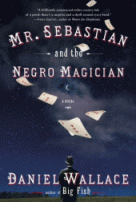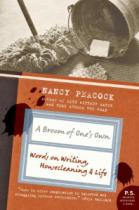Several short items about North Carolina literature here.
 This Sunday, October 19, is the biennial induction ceremony for the North Carolina Literary Hall of Fame, which welcomes three new members to it historic ranks: poet James Applewhite, whose latest collection is A Diary of Altered Light; novelist Lee Smith, whose latest book is On Agate Hill (see my review in Metro magazine); and historian William S. Powell, whose monumental Encyclopedia of North Carolina is a must-have title for anyone interested in the state. The ceremony, which is free and open to the public, begins at 2 p.m. at the Weymouth Center for the Arts and Humanities in Southern Pines.
This Sunday, October 19, is the biennial induction ceremony for the North Carolina Literary Hall of Fame, which welcomes three new members to it historic ranks: poet James Applewhite, whose latest collection is A Diary of Altered Light; novelist Lee Smith, whose latest book is On Agate Hill (see my review in Metro magazine); and historian William S. Powell, whose monumental Encyclopedia of North Carolina is a must-have title for anyone interested in the state. The ceremony, which is free and open to the public, begins at 2 p.m. at the Weymouth Center for the Arts and Humanities in Southern Pines.
 Another set of North Carolina writers have also been honored recently with North Carolina Book Awards, announced earlier this month by the North Carolina Literary and Historical Association and scheduled to be presented formally on Saturday evening, November 8, at the Sheraton Raleigh Hotel. The 2008 honorees included Rob Christensen’s The Paradox of Tar Heel Politics: The Personalities, Elections, and Events That Shaped Modern North Carolina, winner of the Ragan Old North State Award for Nonfiction; Michael Chitwood’s Spill, winner of the Roanoke-Chown Award for Poetry; Cathryn Sill’s About Habitats: Wetlands, winner of the American Association of University Women Award for Juvenile Literature; and Daniel Wallace’s Mr. Sebastian and the Negro Magician, winner of the Sir Walter Raleigh Award for Fiction (see my review in Metro magazine).
Another set of North Carolina writers have also been honored recently with North Carolina Book Awards, announced earlier this month by the North Carolina Literary and Historical Association and scheduled to be presented formally on Saturday evening, November 8, at the Sheraton Raleigh Hotel. The 2008 honorees included Rob Christensen’s The Paradox of Tar Heel Politics: The Personalities, Elections, and Events That Shaped Modern North Carolina, winner of the Ragan Old North State Award for Nonfiction; Michael Chitwood’s Spill, winner of the Roanoke-Chown Award for Poetry; Cathryn Sill’s About Habitats: Wetlands, winner of the American Association of University Women Award for Juvenile Literature; and Daniel Wallace’s Mr. Sebastian and the Negro Magician, winner of the Sir Walter Raleigh Award for Fiction (see my review in Metro magazine).
Yesterday, I made a return appearance on D.G. Martin’s radio show “Who’s Talking” on WCHL, 1360 AM, in Chapel Hill, N.C. — chatting this time about the essay on Civil Rights Era mystery novels I wrote for Mystery Scene magazine (a podcast of the program is available here). Before the show, we talked off-air about Tony Earley’s books Jim the Boy and The Blue Star — reminding me that Earley is going to be a guest on Martin’s TV show, North Carolina Bookwatch, on UNC-TV next weekend: Friday, October 24, at 9:30 p.m. and again on Sunday, October 26, in an “encore” presentation at 5 p.m. The rest of the fall season, below, follows the same schedule (Friday at 9:30 p.m.; Sunday at 5 p.m.):
- Louise Hawes, author of Black Pearls: A Faerie Strand, on Friday, October 31, and Sunday, November 2.
- Nancy Peacock, author of two novels and the recent nonfiction book, A Broom of One’s Own: Words on Writing, Housecleaning & Life, on Friday, November 7, and Sunday, November 9.
- Anna Rubino, author of Queen of the Oil Club: The Intrepid Wanda Jablonski and the Power of Information, on Friday, November 14, and Sunday, November 16.
- Sheila Moses, author of the novel The Baptism, on Friday, November 21, and Sunday, November 23.
- And Clyde Edgerton, whose latest novel is The Bible Salesman, on Friday, November 28, and Sunday, November 30. (See my review in Metro magazine, in which I totally missed the fact that the book had begun as a riff on Flannery O’Connor.)
 And in honor of Martin’s upcoming guest Nancy Peacock (and in recognition that I haven’t included much about the “writing life” in these posts lately), here’s a quick excerpt from A Broom of One’s Own:
And in honor of Martin’s upcoming guest Nancy Peacock (and in recognition that I haven’t included much about the “writing life” in these posts lately), here’s a quick excerpt from A Broom of One’s Own:
I tell anyone that wants to write, but isn’t writing, that each of us gets 168 hours every week. Amazingly prolific writers never had more than 168 hours in a week. It is true that they might have had cooks and nannies and even housecleaners, but they never had any more time in a week than we do. And time is everything. Time is the comforting blanket that cloaks all our days, and the rug that we are constantly pulling out from under ourselves. The most important things to remember about time are that you need it and that you have it….
I cringe whenever a writer asks if I’d like to hear about the book he is working on, or in some cases not working on but merely thinking about. “Write it down,” I tell him.
“Oh, I will. But don’t you want to hear about it now?”
No, I don’t.
Don’t break the magical spell of writing a story and waiting for it to evolve, day after day after day after day. Don’t dither away that energy with cocktail chatter. Don’t give your baby any form other than the written word.
Stories want to be born, but they aren’t attached to the form that they take. A story is just as content to be told orally as it is to be written. If I go around telling it to everyone, it’s happy and gone. The tension is over. Talking about a work in progress to anyone but the most carefully chosen person is a death knell.
On that note, I think I’ll get back to work myself.
— Art Taylor

